Graduate Fellows Colloquia 2023
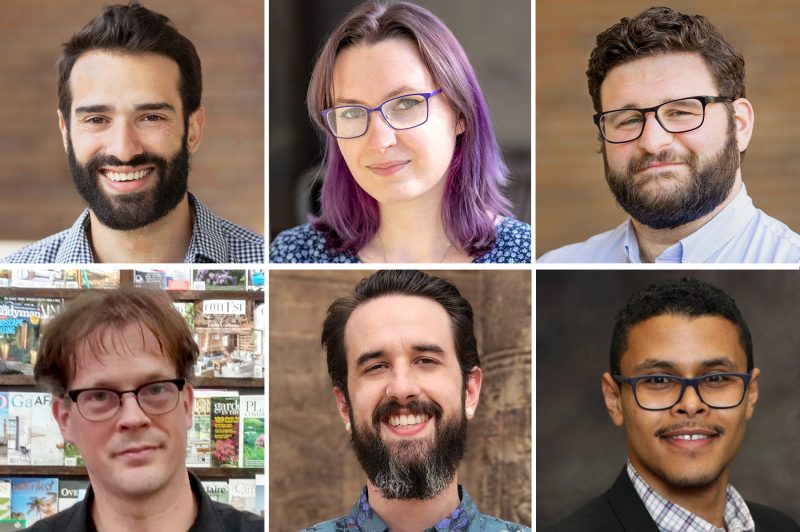
2022-23 graduate fellows (left to right) Jake Beckert, Elizabeth Férauge, Ara Daglian, Aaron Carpenter, Forrest Martin, Yasir Zaidan
Join the 2022-2023 graduate fellows in Jewish studies for online presentations on their research topics from this year, ranging from demon(esses) in ancient Jewish folklore to post-genocide renewal in Armenian Jerusalem.
Colloquium 1. Rereading the Jewish Past: Adaptations for New Contexts
Tuesday, May 30, 2023, 4:00 — 5:30 p.m. PT, Zoom webinar
Monstrous Liliths: Ancient Folklore and the Demon(esses) Haunting Jewish Horror
Elizabeth Férauge, Max Sarason Fellow, Comparative Religion — International Studies
Road Signs with Historical Baggage: How Austria’s Inconvenient History Burdens the Present
Aaron Carpenter, Pamela and Robert Center Fellow, German studies
Bird Brains: the Cosmological Knowledge of Ancient Israel’s Feathered Friends
Forrest Martin, Ina and Richard Willner Memorial Fellow, Department of Middle Eastern Languages and Cultures
Faculty respondent: Naomi B. Sokoloff
Colloquium 2. Israel and the World: Examining the Region in Global Context
Thursday, June 1, 2023, 12:00 — 1:00 p.m., Zoom webinar
The New York of Asia: A Non-Zionist Vision for Mandatory Palestine
Jacob Beckert, Leo & Mickey Sreebny Memorial Fellow, History
Post-Genocide Renewal in Armenian Jerusalem
Ara Daglian, Robinovitch Family Fellow, Middle East Studies — International Studies
Faculty respondent: Alan Dowty
About the 2022-23 graduate fellows
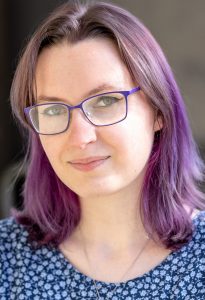
Elizabeth Férauge, Max Sarason Fellow
Elizabeth Férauge is a second-year comparative religion M.A. student at the Henry M. Jackson School of International Studies, and a predoctoral instructor in the Comparative History of Ideas department, where she teaches an undergraduate course on religion and horror films. Before coming to the UW, Elizabeth earned her B.A. in psychology from McGill University, and her M.A. in counseling psychology from The Seattle School of Theology and Psychology, where she currently works as an assistant instructor. Her academic interests lie at the intersection of religious studies and death studies, studying the ways in which concepts of the body and personhood influence afterlife beliefs and mortuary traditions. She is also interested in the afterlives of ancient religions, when ancient themes transcend time and medium to become relevant in contemporary expressions: in literature, popular culture, film, and social justice. Read her research:
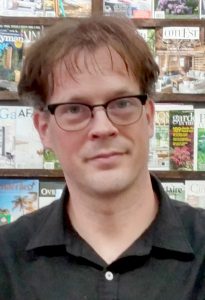
Aaron Carpenter, Pamela and Robert Center Fellow
Aaron Carpenter is a Ph.D. student in the Department of German Studies at the University of Washington. His main areas of academic interest are minority literature in Austria and Germany, as well as literature from German minority groups in non-German-speaking regions, such as South Tyrol in Italy. His dissertation examines how writers from the former Yugoslavia and Austria use foreign words to name and discuss traumatic experiences. While his area of focus is on authors primarily from the former Yugoslavia, the theoretical basis for this work is grounded in the writing of German Jewish thinkers such as Theodor Adorno and Walter Benjamin. Before coming to the University of Washington, Aaron taught English in Qingdao, China, and Innsbruck, Austria, as well as working as a technical writer with Hewlett-Packard. Read his research:
- “How Franz Kafka connected with Yiddish language and theater in Prague” (2022)
- TBD (2023)
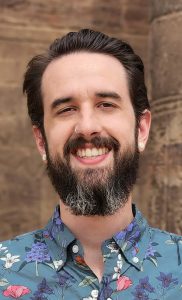
Forrest Martin, Ina and Richard Willner Memorial Fellow
Forrest Martin is an M.A. student and teaching assistant in the Department of Middle Eastern Languages and Cultures. He received his B.A. summa cum laude in Hebrew Bible & ancient Near Eastern studies with a second major in Greek from the University of Washington. He is fascinated by the artistry of ancient texts. His academic interests include a variety of ancient Near Eastern, Mediterranean, and North African languages and literatures, particularly as they relate to ancient religion and conceptions of cosmology. Read his research:
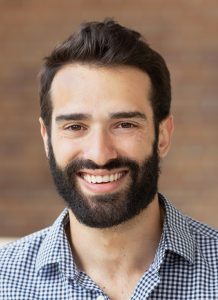
Jacob Beckert, Leo & Mickey Sreebny Memorial Fellow
Jake Beckert is a third-year Ph.D. student in the Department of History. Jake’s research focuses on economic development and global capitalist investment in Mandatory Palestine. Outside of academia, Jake is an avid climber and loves living in a region with such a rich climbing history, and such wonderful mountains. When he is not reading in the library or training at the climbing gym, Jake loves to spend time with his pet chihuahua Appa. Read his research:
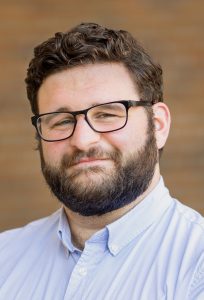
Ara Daglian, Robinovitch Family Fellow
Ara Daglian is a master’s student in the Middle East Studies program at the Henry M. Jackson School of International Studies at the University of Washington. Originally from Connecticut, he received his B.A. in history from Eastern Connecticut State University before coming to the University of Washington. Read his research:
About the respondents
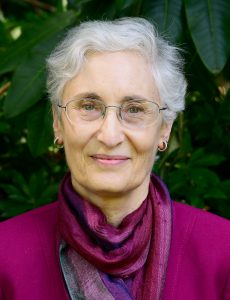 Naomi Sokoloff teaches Hebrew and modern Jewish literature in the Department of Near Eastern Languages and Civilization (soon-to-be the Department of Middle Eastern Languages and Cultures) and the Department of Comparative Literature, Cinema and Media at UW. Her research interests cover a range of modern Jewish writing, with special focus on the representation of childhood in narrative, on Holocaust studies, and on feminist criticism. She has served on the editorial boards of Prooftexts, Shofar, and Hebrew Studies.
Naomi Sokoloff teaches Hebrew and modern Jewish literature in the Department of Near Eastern Languages and Civilization (soon-to-be the Department of Middle Eastern Languages and Cultures) and the Department of Comparative Literature, Cinema and Media at UW. Her research interests cover a range of modern Jewish writing, with special focus on the representation of childhood in narrative, on Holocaust studies, and on feminist criticism. She has served on the editorial boards of Prooftexts, Shofar, and Hebrew Studies.
She has many publications under her belt starting in 1992 and onwards, the most recent of which is her book What We Talk About When We Talk About Hebrew (And What it Means to Americans), co-edited with Nancy E. Berg, appearing in 2018 from UW Press.
Read about the latest in Hebrew and Israeli art and culture, and learn more about modern Hebrew course offerings, on Naomi Sokoloff’s modern Hebrew page.
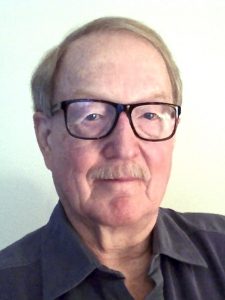 Alan Dowty is an affiliate faculty member at the Stroum Center for Jewish Studies, and is Professor Emeritus of Political Science at the University of Notre Dame. From 1963-1975, he was on the faculty of the Hebrew University in Jerusalem, during which time he served as Executive Director of the Leonard Davis Institute for International Relations and Chair of the Department of International Relations. From 2003-2006, he was the first holder of the Kahanoff Chair in Israeli Studies at the University of Calgary, and from 2005-2007 he was President of the Association for Israel Studies. Among his publications are basic texts on Israeli society and politics (“The Jewish State: A Century Later“) and on the Arab-Israel conflict (“Israel/Palestine,” 4th edition 2017), as well as over 130 scholarly and popular articles. In 2017 he was awarded the Lifetime Achievement Award in Israel Studies by the Israel Institute and the Association for Israel Studies.
Alan Dowty is an affiliate faculty member at the Stroum Center for Jewish Studies, and is Professor Emeritus of Political Science at the University of Notre Dame. From 1963-1975, he was on the faculty of the Hebrew University in Jerusalem, during which time he served as Executive Director of the Leonard Davis Institute for International Relations and Chair of the Department of International Relations. From 2003-2006, he was the first holder of the Kahanoff Chair in Israeli Studies at the University of Calgary, and from 2005-2007 he was President of the Association for Israel Studies. Among his publications are basic texts on Israeli society and politics (“The Jewish State: A Century Later“) and on the Arab-Israel conflict (“Israel/Palestine,” 4th edition 2017), as well as over 130 scholarly and popular articles. In 2017 he was awarded the Lifetime Achievement Award in Israel Studies by the Israel Institute and the Association for Israel Studies.
About the facilitator
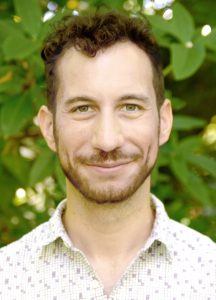
Brendan Goldman came to the Stroum Center from Princeton University, where he was a postdoctoral research fellow in the Program in Judaic Studies, in addition to coordinating the Comparative Diplomatics Workshop and teaching at Northern State Prison in Newark, New Jersey. He received his Ph.D. in history from The Johns Hopkins University in 2018, and now serves as the Stroum Center’s Interim Associate Director and Program Manager.
His first book, “Camps of the Uncircumcised: The Cairo Geniza and Jewish Life in the Latin Kingdom of Jerusalem,” is under contract with University of Pennsylvania Press and will be published in 2021. His second book project, tentatively titled “A Disciplinary Society: Medieval Prisons through Jewish Eyes, 1000-1300,” examines how documents found in the Cairo Geniza, a synagogue storehouse preserving more than 40,000 medieval writings, can illuminate the ways in which state violence shaped the lives of everyday people during the Middle Ages.
